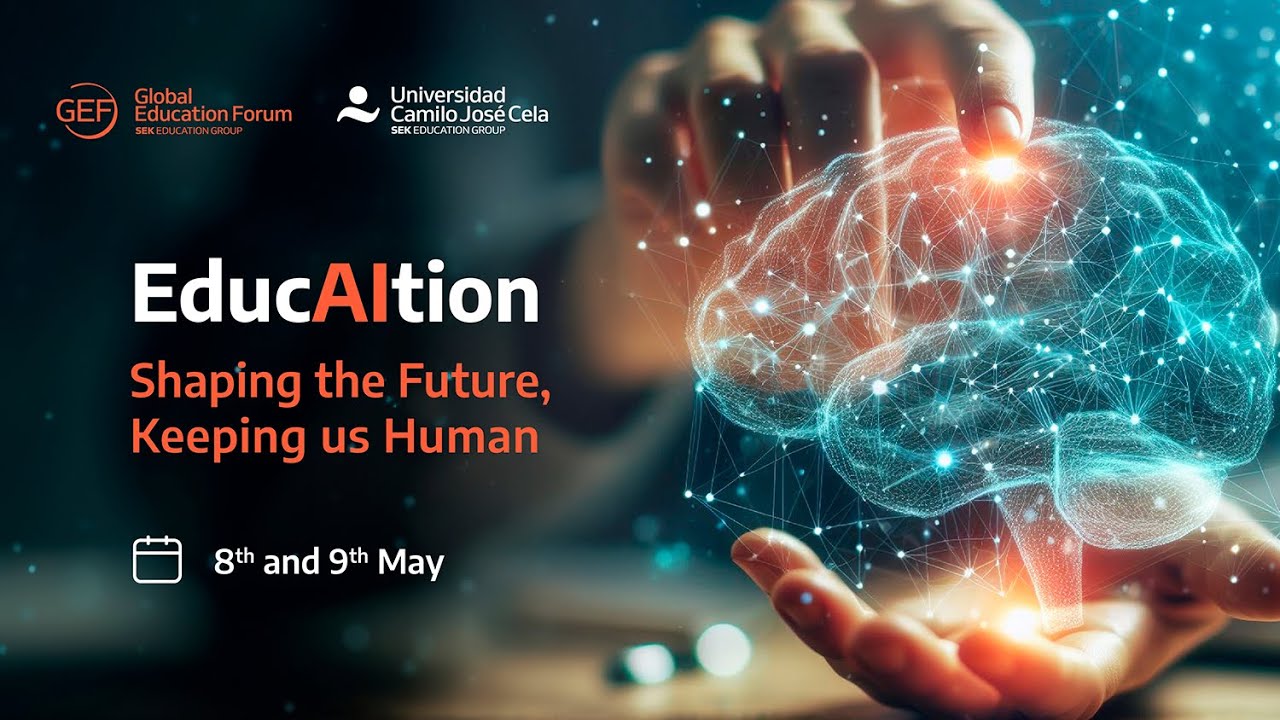Sekolah Indonesia Siap Adaptasi Teknologi AI?
Summary
TLDRThe script explores the growing impact of artificial intelligence (AI) on education, highlighting its potential to optimize learning and adapt to student needs. While AI offers convenience and new learning methods, there are concerns about its effect on teachers' roles and the ethics of education. The script also reflects on the shift towards digital learning, especially during the COVID-19 pandemic, and the ways technology enhances collaboration and accessibility. Experts emphasize the importance of teaching students to use technology responsibly and how AI can support personalized learning, making education more efficient while maintaining the crucial human element of teaching.
Takeaways
- 😀 AI technology in education helps personalize learning by adapting to the individual needs of students.
- 😀 The pandemic forced students to learn independently, increasing their reliance on technology for education.
- 😀 Digital learning tools, including AI, have made students more proficient at using technology for studying.
- 😀 There are concerns that AI could eventually replace teachers, leading to a loss of the human element in education.
- 😀 AI can optimize learning by focusing on students' strengths and weaknesses, allowing for more efficient use of time.
- 😀 Critics worry about ethical concerns, including cheating and potential misuse of AI in education.
- 😀 Teachers' roles remain essential because they provide emotional support and mentorship, something AI cannot replicate.
- 😀 AI tools can help educators design personalized curriculums and provide more targeted feedback to students.
- 😀 Technology must be used responsibly, and educators play a key role in teaching students how to use tech ethically.
- 😀 The rise of AI in education does not negate the importance of human interaction and connection in learning.
Q & A
What is the role of artificial intelligence (AI) in education?
-AI in education is primarily focused on optimizing the learning process by adapting to the individual needs of students. It aims to make learning more efficient, personalized, and accessible, while providing teachers with valuable insights into student performance.
How has the COVID-19 pandemic influenced students' learning habits?
-During the pandemic, students became more independent in their learning by using gadgets for online education. This shift helped them become more tech-savvy and accustomed to exploring various digital learning tools and platforms.
What are the potential benefits of digital learning tools in education?
-Digital learning tools make education more engaging, equitable, and collaborative. They allow students to access diverse sources of knowledge, work together with peers, and explore new methods of learning that are more interactive and convenient.
What are the main concerns regarding AI in education?
-Concerns about AI in education include ethical issues like cheating, as well as the fear that AI could replace the essential human element of teaching, particularly the emotional intelligence and guidance that teachers provide.
How does AI support teachers in the classroom?
-AI supports teachers by helping them identify students' strengths and weaknesses, allowing for more personalized feedback. This can lead to better-targeted lessons and improved learning outcomes, ultimately making education more efficient.
Is there a risk that AI could replace human teachers?
-While AI can assist in some educational tasks, it cannot replace the emotional and human aspects of teaching. Teachers provide invaluable guidance, mentorship, and personal connection with students, which technology cannot replicate.
What role does technology play in the development of global citizens?
-Technology, including AI, is vital in preparing students to become responsible global citizens. Educators are tasked with teaching students how to use technology responsibly and ethically, preparing them for a digital future.
How does digital learning make education more equitable?
-Digital learning tools provide equal access to resources and learning opportunities, allowing students from different backgrounds to engage with content in a way that was not possible before, helping bridge educational gaps.
What are the advantages of using gadgets for learning in comparison to physical textbooks?
-Gadgets allow students to easily access, combine, and share information across various platforms. Unlike physical textbooks, which may be limited in scope or require borrowing, digital tools offer real-time collaboration and a wider range of resources.
How can educators address concerns about technology misuse in the classroom?
-Educators can address concerns by teaching students the ethical use of technology, emphasizing digital responsibility, and guiding them in using AI tools to enhance their learning while maintaining academic integrity.
Outlines

This section is available to paid users only. Please upgrade to access this part.
Upgrade NowMindmap

This section is available to paid users only. Please upgrade to access this part.
Upgrade NowKeywords

This section is available to paid users only. Please upgrade to access this part.
Upgrade NowHighlights

This section is available to paid users only. Please upgrade to access this part.
Upgrade NowTranscripts

This section is available to paid users only. Please upgrade to access this part.
Upgrade NowBrowse More Related Video

Bagaimana Pembelajaran Adaptive dengan Artificial Intelligence

Mind Your Mind: Wisdom in the AI Era | Nina Nagpal | TEDxDFBEDU

Como hacer videos automatizados para Youtube,Tiktok o Reels con ChatGPT 🚀

Effect of Artificial Intelligence on Education | Adrien Dubois | TEDxCanadianIntlSchool

The Impact of AI on Everyday Life - English Podcast |

GEF Madrid 2024: AI's role in Student Wellbeing
5.0 / 5 (0 votes)